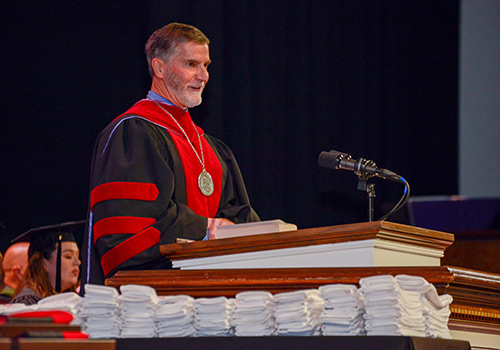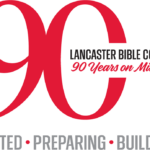About LBC
Additional Facts About LBC
Lancaster Bible College holds accreditations, approvals or memberships with the following entities:
- Middle States Commission on Higher Education (MSCHE)
- Association for Biblical Higher Education Commission on Accreditation (ABHE)
- Pennsylvania Department of Education (PDE)
- Association of Christian Schools International (ACSI)
- Evangelical Training Association (ETA)
- Approved by the United States Department of Justice for the training of non-immigrant international students
- International Alliance for Christian Education
History
Lancaster Bible College was founded by Henry J. Heydt in September 1933. Eight daytime students and 14 evening students were enrolled in the original class, which met in the Convention Hall at West Orange and Pine Streets in Lancaster. William J. Randolph (’50) succeeded Heydt as President. From 1954 to 1961, President Randolph moved the school toward accreditation, and the size of the campus grew, initiated by a gift of land in 1957 from Mr. and Mrs. J. Martin Esbenshade.
In 1961, the school’s academic dean, Stuart E. Lease (’52), was elected President. During his 17-year presidency, the student body grew to more than 400 students, and the campus expanded to 36 acres. In 1973, the school earned provisional approval to grant the degree of Bachelor of Science in Bible, and the school officially became Lancaster Bible College (LBC).
When Dr. Gilbert A. Peterson began his duties as president in 1979, he focused on debt reduction. Within five years, LBC raised more than $500,000 toward financial stability and more than $1.5 million toward the school’s endowment. Additional land was purchased, bringing the campus size to 100 acres.

In 1999, Dr. Peter W. Teague became LBC’s fifth president. During his tenure the Good Shepherd Chapel, Olewine Dining Commons, Peterson Hall, Charles Frey Academic Center and Donald H. Funk Athletic Field were completed. Additionally, the Teague administration added online undergraduate programs and expanded the graduate school to offer terminal degrees.
On February 1, 2020, Lancaster Bible College welcomed its sixth president, Dr. Thomas L. Kiedis. Dr. Kiedis came to LBC from Spanish River Church in Boca Raton, Fla., where he served as senior pastor for 10 years. He was a member of the college’s Corporation since 2012, taught graduate courses as an adjunct faculty member and for six years served as the lead mentor for the church planting concentration of the Master of Arts in Ministry program. Under Dr. Kiedis’ leadership, the college added 25 new online bachelors and masters programs in one calendar year and was named the No. 1 Online Bible College in America.
Institutional Effectiveness
Learn about our core values and goals, as well as how we measure objectives and document student success.
Student Consumer Information
Students can become informed consumers of their LBC education.
Our Partnerships
LBC partners with many institutions, organizations and church networks to offer educational pathways.
Our Rankings
The college is consistently listed by regional and national higher education ranking organizations.
